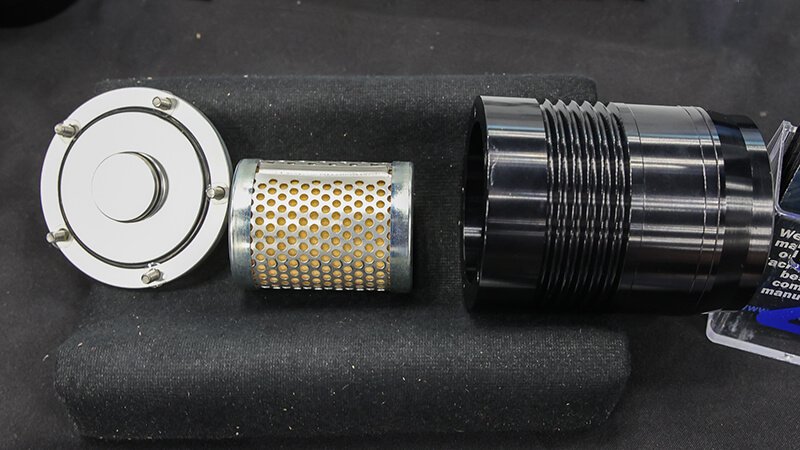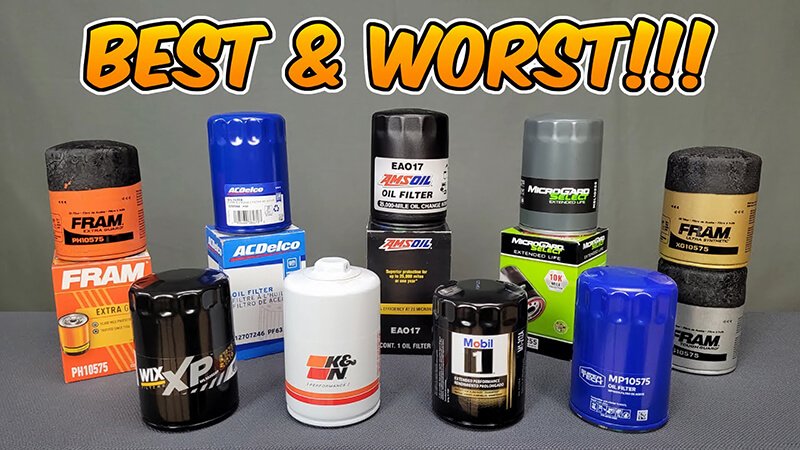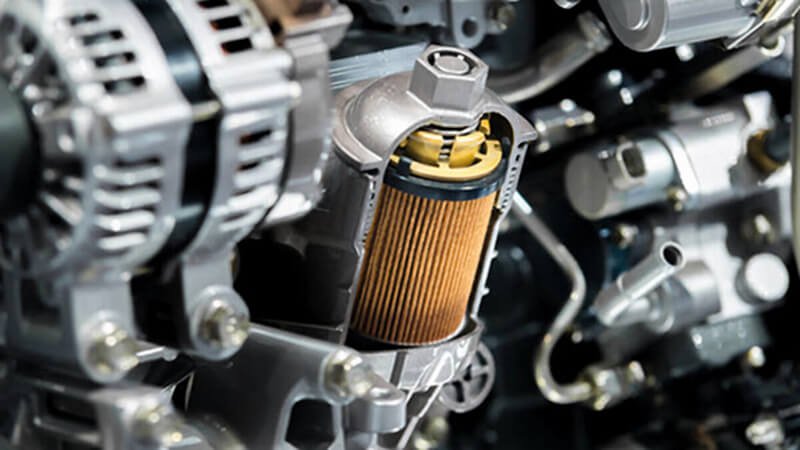Choosing the right oil and filter for your vehicle is crucial to maintaining engine health and performance. With so many options available, it can be confusing for many car owners. But don't worry, I'll guide you through the process and help you make the best choice for your car.
Selecting the correct oil and filter ensures that your engine runs smoothly, avoids unnecessary wear, and achieves optimal performance. By understanding the types of oils and filters, you can make informed decisions that prolong the life of your car. This article will explain how to choose the best options for your vehicle.
Let’s break down each decision-making factor that goes into choosing the right oil and filter. We’ll explore different oils, filters, and how they impact the overall performance of your car.

How to choose the right engine oil for your car?
Engine oil plays a critical role in keeping your engine running smoothly. But how do you pick the right oil for your car? It’s not just about grabbing the first option off the shelf—there are factors to consider.
Choosing the right engine oil depends on factors like your car's make, model, and driving conditions. The right oil ensures proper lubrication, reduces wear, and protects the engine from high temperatures. In this section, we'll discuss how to make the best choice.
When choosing engine oil, it's essential to match it to your vehicle’s engine type, age, and the environmental conditions in which it operates. The most common types of engine oils are conventional and synthetic oils1, each with different advantages, synthetic blend oils2, and oil viscosity ratings3, each playing a key role in your engine’s performance.
Types of Engine Oil
| Type of Oil | Best for | Benefits | Example |
|---|---|---|---|
| Conventional Oil | Older cars, budget-friendly | Cost-effective, basic lubrication | 5W-30, 10W-30 |
| Synthetic Oil | Newer cars, extreme conditions | High performance, better at high temperatures | 0W-20, 5W-40 |
| Synthetic Blend | Balance of cost and performance | Combination of conventional and synthetic properties | 5W-30, 10W-40 |
Conventional Oil
Conventional oil is derived directly from crude oil and is the most affordable option. It provides adequate lubrication for engines under normal operating conditions but lacks the enhanced performance offered by synthetic oils. This type of oil is suitable for older vehicles or those driven in mild climates.
Synthetic Oil
Synthetic oils are engineered to offer superior performance in high-stress conditions. They are created through chemical processes and are designed to flow better at low temperatures and resist breakdown at high temperatures. This makes synthetic oils ideal for newer vehicles or those that operate in extreme environments, such as very hot or cold climates.
Synthetic Blend Oil
Synthetic blend oils offer a balance of affordability and performance. These oils are a mixture of conventional and synthetic oils, offering the benefits of both, such as better high-temperature stability, at a lower cost than full synthetic oils. This type is ideal for people who want better protection for their engines but don’t want to pay for full synthetic oil.
Viscosity Rating and What it Means
Viscosity refers to the thickness of the oil and how it flows through your engine. It is marked by numbers such as 5W-30, where the first number refers to the oil's flow at cold temperatures (the lower the number, the better it flows in winter), and the second number refers to how thick the oil is at high temperatures. Choosing the correct viscosity ensures that your engine gets the right lubrication under various conditions.
| Viscosity Rating | Best for | Typical Conditions |
|---|---|---|
| 5W-30 | Most modern vehicles | Mild to moderate climates |
| 10W-40 | Older or high-mileage engines | Warmer climates, hot conditions |
| 0W-20 | Newer engines, hybrids | Cold climates, high efficiency |

How do I tell what oil to put in my car?
Wondering how to figure out which oil is right for your car? There are a few steps you can follow to make sure you're picking the right one for your engine.
To know what oil to use, you need to consider your car’s manufacturer recommendations4, the engine’s age, and the weather conditions where you drive. These factors will guide you to the best oil for your car’s engine.
The easiest way to determine what oil to put in your car is by checking the owner’s manual5. This document will provide the manufacturer’s recommendations for oil type, viscosity, and grade. It’s important to follow these guidelines, as they are designed to optimize your car's performance and engine life.
However, beyond the manual, you should consider factors like your vehicle's age, mileage, and driving conditions6. For example, a high-mileage vehicle might require a different oil than a brand-new car. In addition, extreme weather conditions can dictate whether you need a thinner oil (for cold weather) or a thicker oil (for hot weather).
| Factor | Importance | Example |
|---|---|---|
| Manufacturer’s Recommendations | Ensures optimal performance | Always check the owner’s manual for oil type and viscosity |
| Weather Conditions | Affects oil thickness | Thicker oil for hot weather, thinner for cold |
| Engine Age | Determines oil requirements | High-mileage vehicles may need specific oils for better protection |

Does it matter what oil filter you put in your car?
The oil filter7 plays an essential role in your vehicle’s performance. But does it really matter which oil filter you use? Let's dive into this.
Yes, it does matter. The right oil filter helps ensure that oil circulates properly through the engine, removing contaminants. Choosing a quality filter8 ensures your engine remains clean, reducing wear and improving longevity.
An oil filter is responsible for trapping contaminants that build up in the oil over time. If the filter isn’t effective, impurities can circulate through the engine, potentially causing damage. This is why choosing a high-quality filter is essential for maintaining your engine’s health.
Types of Oil Filters
| Type of Filter | Benefits | Example |
|---|---|---|
| Mechanical Filter | Budget-friendly, basic filtration | Standard vehicles |
| Pleated-Paper Filter | Good filtration, cost-effective | Mid-range vehicles |
| Synthetic Filter | Higher filtration efficiency, longer life | Premium vehicles, extreme conditions |
Mechanical Filters
These are the most basic filters and are often cheaper. They use a simple mechanical process to trap contaminants but might not be as effective at removing fine particles. They're typically found in older vehicles or those with less demanding requirements.
Pleated-Paper Filters
Pleated-paper filters offer better filtration than mechanical filters, with an increased surface area to trap more contaminants. These are the most common filters and strike a good balance between performance and price.
Synthetic Filters
Synthetic filters are designed for optimal filtration and longer service life. They are made from advanced materials that capture even finer particles, making them perfect for high-performance or high-mileage vehicles. These filters are typically used in cars that need more thorough filtration and longer intervals between oil changes.
Why Choosing the Right Oil Filter Matters
An incorrect or low-quality oil filter can significantly affect engine performance. If the filter is too restrictive, it can limit oil flow, leading to poor lubrication and engine damage. On the other hand, a filter that is too loose or poorly designed may fail to trap debris effectively, allowing harmful particles to circulate in the engine, which could lead to corrosion.

What happens if you put the wrong oil filter on a car?
Using the wrong oil filter9 may seem harmless, but it can have significant consequences. What could happen if you make this mistake?
If you install the wrong oil filter, it can affect oil flow, reduce engine protection, and cause oil leaks. This may lead to engine damage over time, resulting in costly repairs. It's crucial to choose the right filter for your vehicle.
Installing the wrong oil filter can lead to a host of problems. The most immediate issue is oil leakage10. If the filter doesn’t fit properly, it can cause oil to leak from the engine, leading to low oil levels and inadequate lubrication. This can result in severe engine damage if not addressed quickly.
Furthermore, an incompatible oil filter may restrict oil flow, causing the engine to run with insufficient lubrication. This can cause overheating, increased wear, and, in the worst case, engine failure. The wrong filter may also fail to trap debris effectively, allowing harmful particles to circulate in the engine, potentially damaging key components.
Another issue is that the wrong oil filter may not have the correct pressure specifications. This could lead to poor oil circulation, meaning that parts of the engine don’t get the lubrication they need. To avoid these problems, always ensure that the oil filter you use matches the specifications outlined in your car’s manual.
| Potential Issue | Consequence | Example |
|---|---|---|
| Oil Leakage | Decreased oil levels, potential engine damage | Leaky filter seals |
| Restricted Oil Flow | Engine overheating, accelerated wear | Wrong filter size |
| Inadequate Filtration | Contaminants in engine oil | Poor quality filter |

Conclusion
In conclusion, choosing the right oil and filter for your car is critical for maintaining engine health and performance. Always refer to your car's manual for the right oil type, viscosity, and filter specifications. By making the right choices, you’ll ensure a longer-lasting engine and smoother driving experience.
-
Learn about the differences between conventional and synthetic oils and which one is best for your car. ↩
-
Discover the benefits of synthetic blend oils and how they differ from conventional and full synthetic oils. ↩
-
Understand how oil viscosity ratings impact your engine’s performance and the importance of selecting the right one. ↩
-
Learn why following the manufacturer's oil recommendations is crucial for your car’s performance and engine longevity. ↩
-
Discover what to look for in the owner’s manual when choosing the right oil for your vehicle. ↩
-
Understand how your driving conditions and environment influence the type of oil your engine needs. ↩
-
Understand why selecting the right oil filter is crucial for engine health and longevity. ↩
-
Learn the important function of oil filters in keeping your car's engine clean and functioning properly. ↩
-
Learn about the risks of using the wrong oil filter and how it can damage your car's engine. ↩
-
Understand the impact of oil leakage on your engine and how it can lead to expensive repairs. ↩












